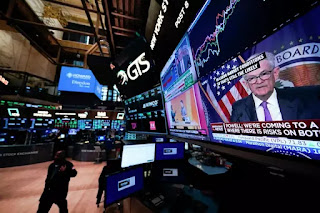The Federal Reserve is expected to hold on interest rate cuts as they assess the economy and inflation . The policymakers are likely to signal that they expect to wait until they’re confident that inflation, which has tumbled from its peak, is reliably moving to their 2% target.
The central bank’s benchmark rate influences the cost of most consumer and business loans, and companies, investors, and individuals have been eager for the central bank to ease the cost of borrowing. However, the economy remains healthy and doesn’t appear to need the stimulative benefits of a rate cut, which can spur more borrowing and spending and could even re-ignite inflation. The stock market is near a record high, and the yield on the influential 10-year Treasury note is well below its peak of nearly 5% last fall.
The Federal Reserve will likely move closer Wednesday to cutting its key interest rate after nearly two years of hikes that were intended to fight the worst inflation in decades. Yet it may not provide much of a hint about when — or how fast — it will do so. Most Fed watchers think the central bank’s first rate reduction will occur in May or June.




Comments
Post a Comment